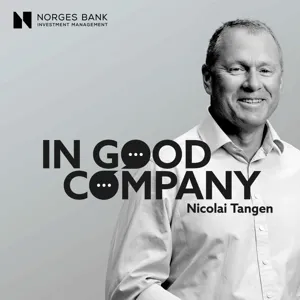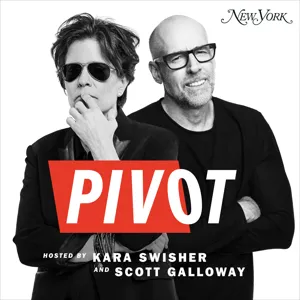Podcast Summary
Revolutionizing the world with AI: OpenAI's ChatGPT and its use cases: OpenAI's ChatGPT is transforming industries by increasing productivity and offering virtual assistance, from developers to one-person laundromat businesses.
OpenAI, under the leadership of Sam Altman, is revolutionizing the world with AI technology, particularly with the introduction of ChatGPT. The vision is to coexist with AI and understand its impacts on society by deploying it and learning from its use. The next few years are clear with a roadmap for advancements, but beyond that, there's a lot to learn. The most impressive moments haven't been about new technology, but rather the wide range of use cases people are finding for it, even in unexpected industries. For instance, developers are using it to increase productivity, while a one-person laundromat business owner uses it as a virtual employee for marketing, customer service, and legal document review. These examples showcase the vast potential of AI to transform workflows and productivity.
Exploring the Future of AGI and Its Ethical Challenges: OpenAI's CEO discusses the potential of AGI, the challenges of ethical alignment, global governance, and equitable distribution, and expects significant progress by the end of this decade.
We are on the brink of advanced artificial general intelligence (AGI), but the path to ensuring its benefits reach all of humanity while addressing ethical, social, and economic challenges is complex. Sam Altman, CEO of OpenAI, shared his excitement about neural interfaces and non-invasive mind-reading technologies, but expressed less enthusiasm for brain implants. OpenAI, with its team of researchers, product developers, and policy experts, is working on scaling up current models to AGI, while also considering how to govern, share access to, and distribute the benefits of this powerful technology. The biggest challenges include ethical alignment, global governance, and sharing the benefits equitably. Altman expects significant progress towards AGI by the end of this decade, but emphasizes the importance of addressing these challenges to ensure a positive impact on society.
The Impact of AGI on Our Lives and Work: AGI's democratization of intelligence could provide access to expert knowledge and services, but also presents risks like hitting a technological wall or misjudging its trajectory, potentially shifting the global balance of power and changing the future of work.
The development of AGI, or Artificial General Intelligence, is expected to significantly change the way we work and live, potentially making everyone's lives richer, especially those in developing countries. This technology is causing excitement worldwide, despite concerns about its potential downsides and disruptions. The democratization of intelligence through AGI has the potential to provide access to expert knowledge and services to those who cannot afford them currently. However, there are risks, including the possibility of hitting a technological wall or misjudging the trajectory of the technology. The global balance of power could also shift due to the widespread availability and potential applications of AGI. Ultimately, the future of work is expected to involve doing things that people love, with less boring tasks, and a higher standard of living.
The Future of AI Development: The future of AI development relies on technological advancements, innovative thinking, and access to resources, with economic benefits potentially shared among many, but the cost of training new generations and geopolitical competition presenting challenges.
While GPT-4 is currently the most advanced AI model available, its development and advancement beyond this point depend heavily on access to advanced chips and innovative thinking. Anyone can access and use GPT-4, but the ability to create the next generation of groundbreaking AI technology is limited to a select few. The use of AI is expanding rapidly, with applications in various industries such as automobiles, and the economic benefits of this technology will likely be shared among many. However, the cost of training these models is significant, and the need for continuous investment in new generations presents a challenge. In the geopolitical landscape, there is a race to integrate and apply AI technology, and it remains to be seen how China will factor into this competition. Ultimately, the future of AI development will require a combination of technological advancements, innovative thinking, and access to resources.
Learning from AI models and the value of partnerships: Though AI models may depreciate, the knowledge gained is invaluable. Microsoft and OpenAI's partnership demonstrates successful collaboration in the tech industry, with Microsoft providing resources and OpenAI developing models.
While the economic value of AI models like GPT-4 may depreciate quickly, the knowledge gained from developing and deploying them is invaluable and contributes to future advancements. The competitive landscape is filled with companies contributing new features and capabilities, with no clear leader. Microsoft and OpenAI have a productive partnership, with aligned goals and a spirit of compromise when disagreements arise. The relationship between the two entities is clear: Microsoft provides the computing power, and OpenAI trains and uses the models. The usage of ChatGPT is not decelerating but continues to grow. The company's approach to innovation is flexible, with a focus on experimentation and figuring things out as they go. The partnership between Microsoft and OpenAI is a prime example of a successful collaboration in the tech industry.
Regulating AI for Consumer Protection and Transparency: Governments should implement regulations for AI interactions, requiring disclosure, and global regulations for systems capable of significant harm. Companies should focus on productivity growth in response to AI advancements.
While AI can be self-regulated to some extent, governments ultimately hold the power to regulate the technology. Reasonable regulations, such as requiring disclosure when interacting with AI, are important for consumer protection and transparency. Global regulation is expected for AI systems capable of causing significant harm to the world, as the cost of intelligence continues to decrease. Companies should aim for ambitious productivity growth in response to advancing AI technology. However, there is no inherent limitation to what AI can achieve.
Fear of failure and common pitfalls in leadership: Underestimating rewards and overestimating risks can prevent progress. Neglecting talent development and delegation can hinder strategic thinking. Hire great people, communicate vision, and provide freedom for creativity.
People often underestimate the rewards and overestimate the risks when it comes to pursuing new opportunities, whether it's starting a business or taking on a new role. This fear of failure can lead to missed opportunities and a lack of progress. As for leadership, there are common pitfalls, such as neglecting talent development and delegation, which can hinder strategic thinking and growth. In terms of managing geniuses or researchers, it's important to hire great people, communicate the vision, and provide them with the freedom to explore their ideas while offering guidance at a high level. Companies can sometimes be too detailed in their remits for teams, which can stifle creativity and innovation. Ultimately, recognizing and addressing these patterns can help individuals and organizations make the most of their time and resources.
Rediscovering the importance of research and innovation in Silicon Valley: The speaker shared his experience of reviving a culture of research and innovation in Silicon Valley despite the shift towards quick-return investments, emphasizing the importance of long-term thinking and talent evaluation.
The culture of scientific research and innovation in Silicon Valley has evolved significantly over the years. According to the speaker, there was a time when great research and breakthroughs were common in the Valley, but that changed as the focus shifted towards more reliable and quick-return investments. The speaker, who was involved in the founding of OpenAI, shared that they had to rediscover the importance of research and innovation, making mistakes along the way but eventually creating a culture where promising ideas were identified and resources were concentrated behind them. The speaker questioned the absence of innovation culture in Silicon Valley and attributed it to the ease of creating valuable companies and the shift towards more short-term focus. The speaker's superpower was identified as the ability to think long-term and evaluate talent, which proved valuable in the early days of OpenAI when the goal was to build artificial general intelligence, a goal that was considered unrealistic and even unethical by many at the time.
Evaluating Talent: Intelligence, Accomplishments, and Novel Ideas: Sam Altman of Y Combinator looks for intelligence, past successes, and unique ideas when assessing talent. Failure is a learning opportunity and resilience is crucial.
Assessing talent is a skill that can be developed through experience, even if it's difficult to articulate the exact process. Sam Altman, the President of Y Combinator, shared that he looks for signs of intelligence, a track record of accomplishment, and novel ideas when evaluating potential talent. He emphasized that failure is a part of the process and learning to bounce back is crucial. Europe, on the other hand, is often criticized for its lack of innovative culture. The fear of failure and cultural norms play a significant role in this. Sam shared that in Silicon Valley, failure is tolerated, and he encouraged seeking advice from a diverse range of people when facing major decisions. Looking ahead, Sam is excited about the potential of fusion energy and AI to bring down the cost of energy and intelligence, respectively, and believes they hold the key to solving some of the world's most pressing challenges, including climate change.
Sam Altman's book recommendation: 'The Beginning of Infinity': Sam Altman, a tech leader, values reading, recommends 'The Beginning of Infinity' for its broad perspective, and hopes to make a significant impact on tech and society.
Sam Altman, a prominent figure in the tech world, deeply values the power of reading and the inspirational impact of certain books, particularly "The Beginning of Infinity." He regrets not having enough time for reading lately but strongly recommends this book to young people for its expansive perspective on the world and its inspiring message that one can solve any problem. Looking ahead, he hopes his legacy will be about making a significant impact on the tech world and society, but for now, he is focused on solving the day-to-day challenges of building and leading.





